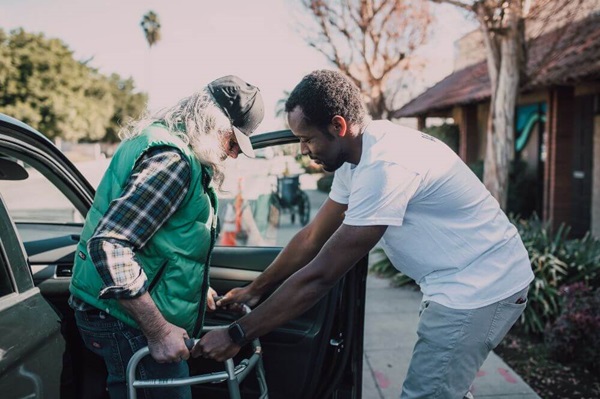Discipleship. Though the word shows up a lot in church settings, knowing exactly what it means and, perhaps more importantly, what it looks like for our personal faith, may be harder to define.
The United Methodist Church’s mission statement extols us to “make disciples of Jesus Christ for the transformation of the world.” The outward-facing disciple-making is one thing; becoming a disciple is another.
For many, personal discipleship may include digging in to a rigorous routine of Bible study, praying fervently and attending church often. Jesus modeled a different path.
Defining ‘discipleship’ without the word ‘disciple’
“Personal discipleship is about more than Christian ed and attending Sunday school,” says the Rev. Stacey Harwell-Dye, pastor of Mercy and Justice at West End United Methodist Church. “The concept of being a disciple is following and patterning. It’s almost like an apprenticeship, the act of following Jesus.”
Not surprisingly, Jesus showed us how to be a disciple through his day-to-day activities of mingling with and advocating for marginalized communities, extending kindness to others and looking at the world through a lens of love. The scriptural accounts of Jesus being outside the church walls far outnumber those verses where Jesus is inside.
“Scripture continually tells us to be out in the community doing God’s work,” Harwell-Dye explains. “Jesus, in the Gospel of Mark, is out feeding, healing, teaching. And I think to be a disciple, to literally be a follower of Jesus, we are called to do those things as well.”
Both/and
Before tossing more traditional discipleship practices aside, scripture does show us where Jesus spends time in prayer, teaches others in synagogues and participates in church services, all important steps in our individual faith journeys.
The Apostle Paul also writes about personal refinement and personal holiness.
“For Paul, fixing your mind and heart and thoughts on what is good and pure and holy is one way to refine who you are in your relationship with God,” Harwell-Dye points out. “John Wesley had a lot to say about that too, which is a part of what I love about Wesley and The United Methodist Church. We work on ourselves and our own personal discipleship, loving God and loving ourselves so that we can then love our neighbor.”
“So it’s a both/and,” she says. “It’s reading Scripture, being personally holy and having the social holiness to go out to the prisons, to go out into the community.”
Set aside the checklist
While Jesus, along with Paul and John Wesley (and others), show us how to live as Jesus followers, there may be a danger, Harwell-Dye shares, of making personal discipleship about following a set of rules.
“You see Jesus in Scripture several times showing where the rules actually got in the way of healing and wholeness. Some of my favorite Scriptures are when Jesus heals on the Sabbath and does something on the Sabbath and (the Pharisees) just freak out about it,” says Harwell-Dye. “And Jesus again and again tells them and tells us through Scripture, remember, it’s not about these rules. If the rules aren’t serving with the love of God and love of neighbor, the rules aren’t great.
“My personal journey of discipleship is less about a checklist of what to do and what not to do and more of an abiding in Christ and an abiding in the Spirit,” she offers.
Harwell-Dye says she no longer checks off boxes, but she often asks herself questions to assess the state of her relationship with God.
- What did I do right today?
- Where are the areas where I could do better?
- Where did I not love my neighbor, not love God, not love myself?
- Where did I do well loving God?
- Where did I do well loving my neighbor?
- Where did I go to those places where Jesus would go?
“It’s not just for the transformation of the world,” Harwell-Dye says, “but I think transformation of the world starts in our own ways of thinking and in own hearts.”
Crystal Caviness works for UMC.org at United Methodist Communications. Contact her by email.
This story was published on October 18, 2023.





